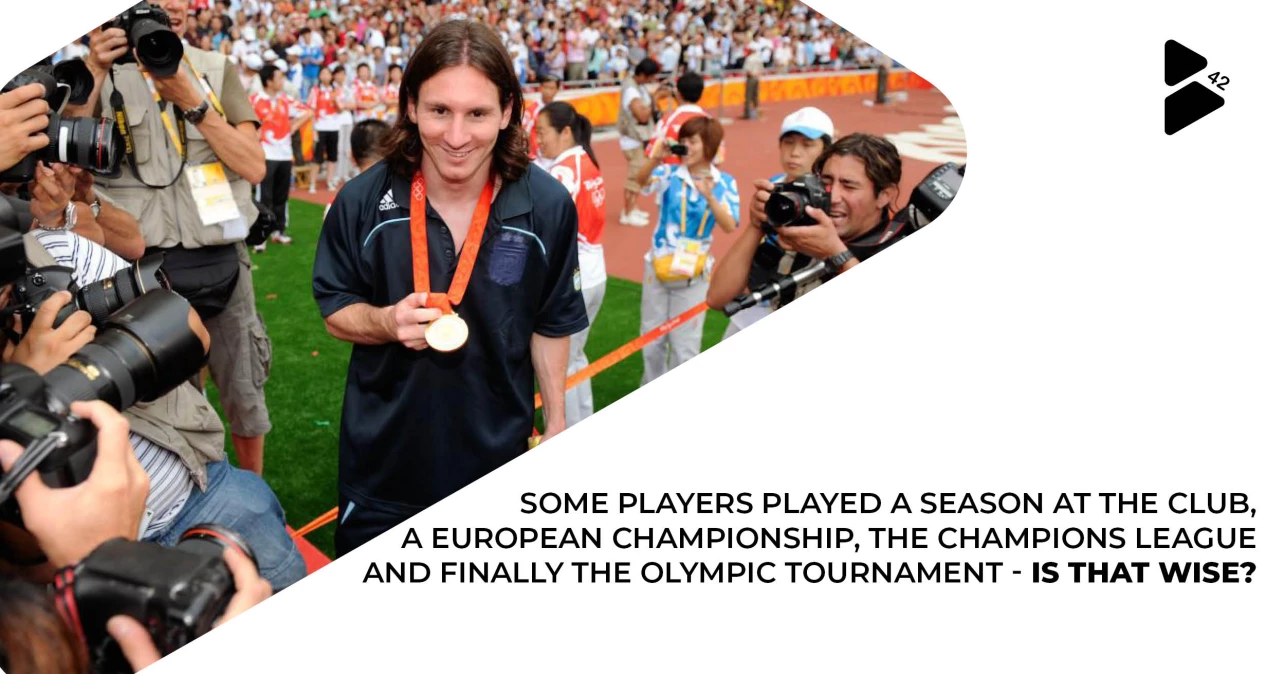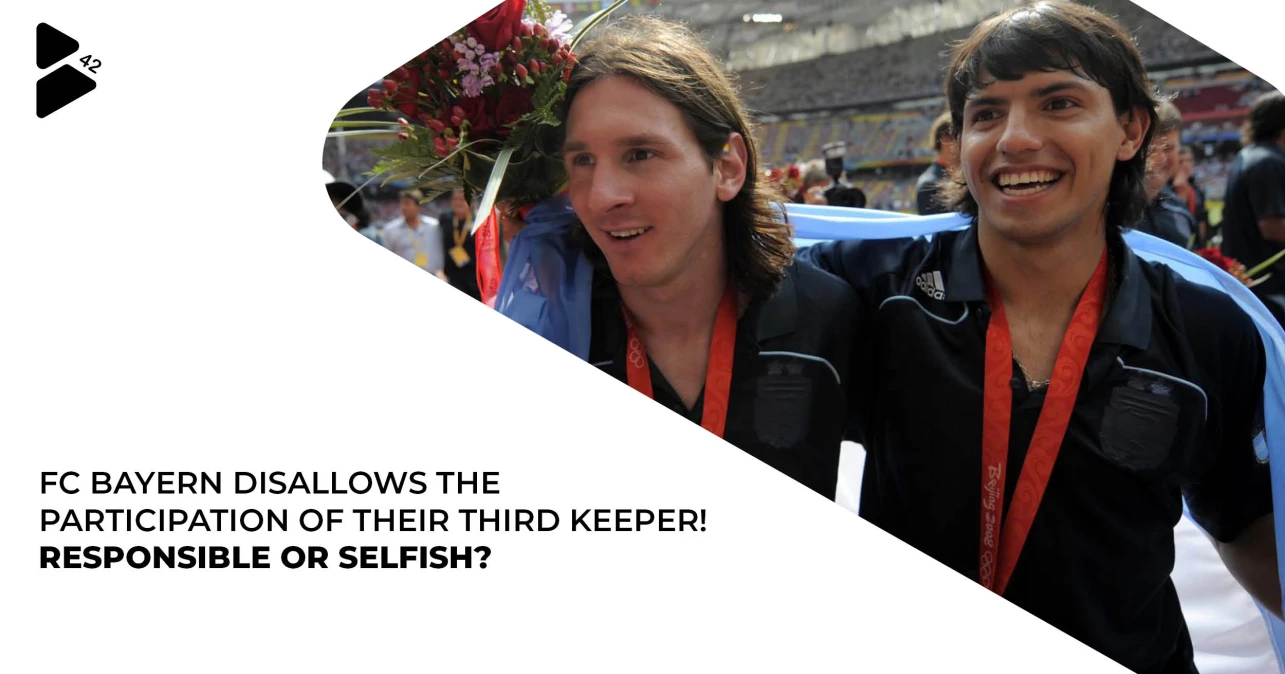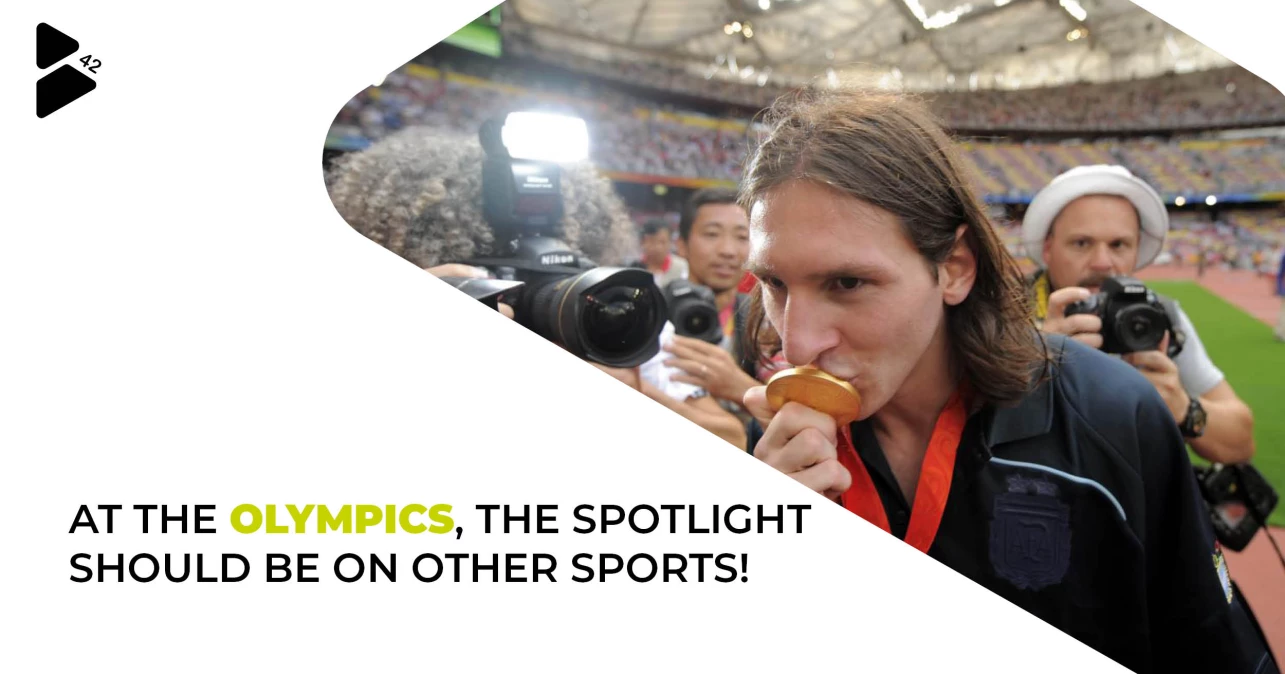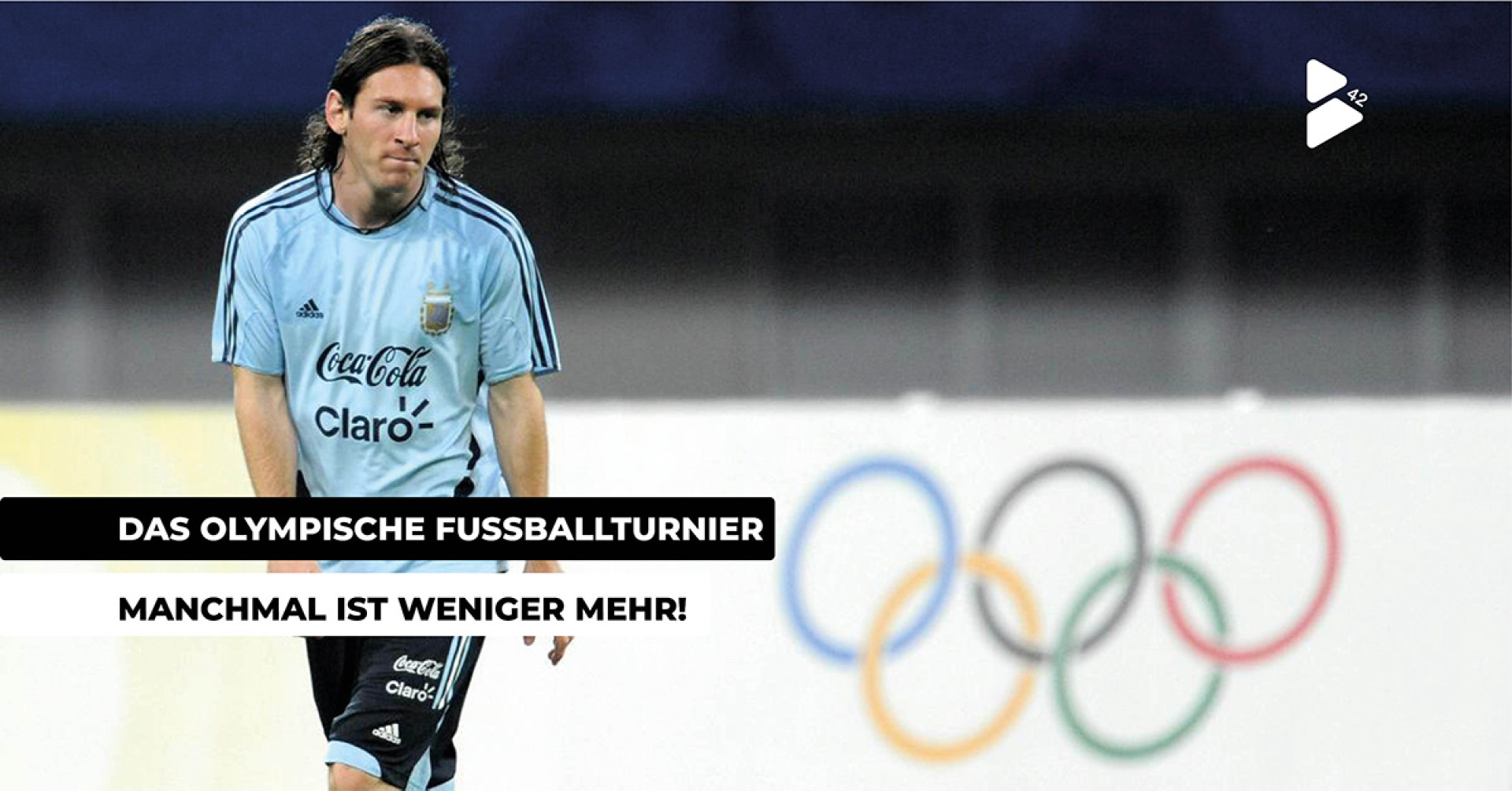Test and preparation matches, everyday league life, cup matches, international club competitions, the European Championship and now the Olympic football tournament - fans can no longer breathe for all the supposed highlights. One football event follows the next.
We didn't just find out yesterday that the stars of some of today's top clubs are capable of achieving great performances: 34 league games, in other countries even up to 40 games, plus the cup competition, up to 13 games in the Champions League, or 15 in the Europe League. That's up to 60 games for the club in a season. Shortly after that, we were already in the midst of the European Championship hustle and bustle. Once again, up to seven games were scheduled within a month. And now: The Olympic tournament in Tokyo with up to six more games calls together the supposedly best nations in the world.

Olympics as a catwalk for the big breakthrough?
Every year there are more games and new competitions, such as the Europa Conference League, are implemented. This year, there is also the shortened summer break due to the Corona pandemic. Yet the players remain silent.
You always hear: the guys have to play, play, play. But when is it too much? Of course, we don't want to accuse any player of ignorance and trust in correct self-assessments. Nevertheless, the constantly intense stresses and strains cannot fail to leave their mark on even the most exceptional athletes. The showcase for our consumer society should not take place at the expense of the players' health.
To make matters worse, the Olympic football tournament is now added to the seemingly endless season. Participants such as Honduras, Romania or Saudi Arabia will meet Brazil, France, Germany or Spain. For each nation, the teams are mostly made up of U23 players, with up to 3 experienced players above the age limit being allowed to be part of the squad. And yet the names of the big stars are missing. Whether it's Max Kruse for Germany, André-Pierre Gignac for France, or Dani Alves for Brazil, the veteran stars no longer come close to the very highest level of the football elite. And even world-class players, such as Kylian Mbappé, Kai Havertz or Vinicius Jùnior, all of whom are under 23, are missing out on a potential Olympic title. It seems that football at the Olympics offers young talents, as well as aging ex-stars, the chance to recommend themselves for bigger tasks and make a breakthrough. However, let's take a look at arguably the biggest star of the football Olympics.
Pedri - a name on everyone's lips
One who has been hit particularly hard by the strain is 18 years old and plays for one of the biggest clubs in the world: FC Barcelona. The 1.74 meter tall Spaniard is an absolute exceptional talent who follows in the footsteps of absolute legends, such as Xavi and Iniesta. An incredible ball security, an enormous passing quality and a very fine dribbling are among the greatest strengths of Pedro González López.
But it is not only because of his outstanding talent that one regularly stumbles across the name Pedri. The midfielder, who is a fixture in the club and national team, never seems to tire. In the 2020/21 season he played 52 games at club level, missing just one game in the league. In the summer, 6 games followed with "La Furia Roja" before it was all over in the semifinals against the future European champions Italy. And now Pedri is back on the pitch for the Olympic team in Tokyo. It's almost fortunate that FC Barcelona didn't make it past the round of 16 in the Champions League and had to watch the remaining five games from home. It is unlikely that even one commentator has not yet uttered the name Pedri.
Whether it's due to his young age, his discipline, or just his luck so far, the seemingly endless season still has no end for him. And then the new season is already upon us. In addition to Pedri, there are five other players in the Spanish Olympic squad who have already participated in the European Championships: Unai Simón, Eric Garciá, Pau Torres, Dani Olmo and Mikel Oyarzabal.
Are the German teams smarter?
In the Bundesliga, teams have mixed reactions to the Olympic football tournament. While FC Bayern München and Borussia Dortmund did not send any of their players to the tournament, Hertha BSC and FC Augsburg, for example, each have two. Hertha's new sports managing director Fredi Bobic supports the Olympic team and hopes for its success. Whether the club now has to start without two of its regular players in the first round of the cup against an amateur club is irrelevant. After all, should Kuntz's charges reach the Olympic final, they will be available to their teams again in time for the start of the Bundesliga.
And at Bayern? There, the appointed third goalkeeper Ron-Thorben Hoffmann is kept from participating, as only one other goalkeeper, Sven Ulreich, is available for the start of preparations. As a result, the 22-year-old from Munich will have to forgo his first major tournament in order to resume training with Bayern's non-EC players at Säbener Straße. Aggravating for Hoffmann, who wanted to recommend himself for a new club at the Olympics. His contract expires in the summer of 2022.

Football and the Olympics: a competition in the shadows
We probably all know the previous football world champions, and most of us are also familiar with those nations that were able to snatch the European championship title. But who are the Olympic champions? Who would have thought that Poland, Nigeria or Cameroon were already enthroned at the top?
The biggest sporting event in the world meets the most popular sport in the world and hardly anyone cares. Every 4 years, the summer Olympics brings together the world's greatest exceptional athletes from a wide variety of sports. Usain Bolt, Michael Phelps or Robert Harting triggered enthusiasm and cheers in the stadiums. Only in football does the enthusiasm not spill over to the fans. Most Olympians train their entire lives for this one moment: a few minutes or even seconds decide the victory and glory of the participants. No 60 games in five different competitions offer the possibility to win a title after all - only this one moment, which takes place every four years, determines the sporting honor. For once, not everything revolves around the game with the round leather! At the Olympic Games, football is overshadowed by disciplines from athletics, aquatics or martial arts. And that's a good thing for once.

Sometimes less is more.
Since the resumption of play after the Corona pandemic, there has been almost no break. Football has been ever-present. What was our every childhood dream is a real nightmare. Every day there are broadcasts on various providers, the number of competitions exceeds our capacity to absorb them and the players become puppets of the associations. We are mercilessly overwhelmed by the consumption of football. The Olympic tournament comes at just the right time. At last, other sports are taking center stage. Whether gymnastics, badminton, golf or surfing - the main thing is not football!


